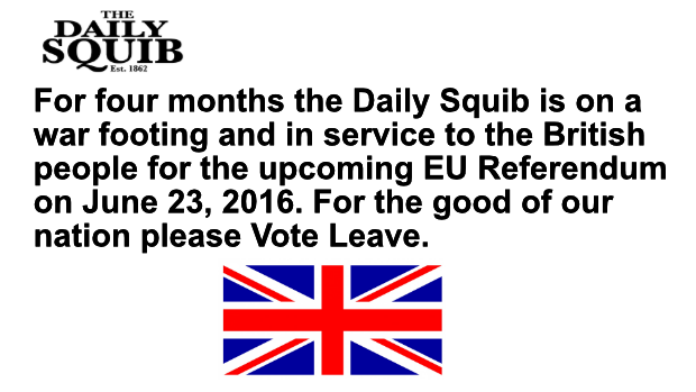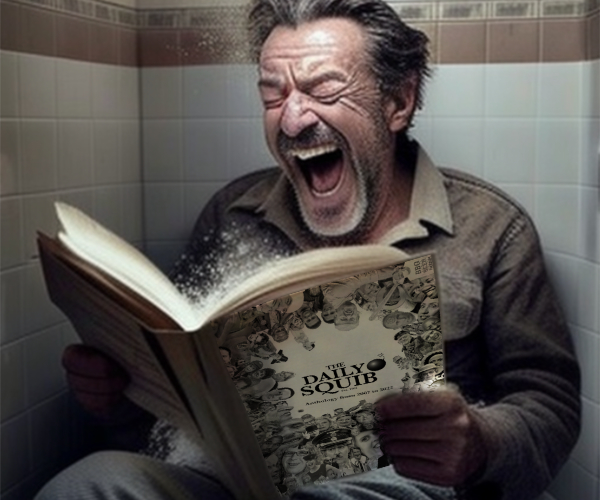Responding to Ed Vaizey MP’s comments on roaming charges, Matthew Elliott, Chief Executive of Vote Leave, said:
“David Cameron sacrificed a key pledge on child safety to rush through his supposed deal on roaming charges. Now ministers are doing down consumer rights to try and win the referendum. These charges are being abolished across Europe and abroad, there is no evidence to suggest that they will go up if we Vote Leave. We should trust the power of consumers, not EU bureaucrats who waste the £350 million we hand them every week.”
Contradicting his stance that roaming charges will rise in the event of a Brexit, Ed Vaisey previously said they would not: “If… we were to withdraw from the European Union, I still think that British consumers would benefit… It is dangerous for any government Minister to comment on what may or may not impact on people’s views when they vote in this referendum. As we experienced with the Scottish referendum, it may be that everything, including the kitchen sink, is thrown into the argument and that roaming charges become part of that debate, but my instinct is that, should the British public decide to leave the European Union, that will not impact on their roaming ability in Europe.”
Roaming charges are being abolished for those travelling to countries outside the EU. As the Government has argued, this is in the commercial interests of mobile phone companies.
The mobile network Three has abolished roaming charges for customers visiting the United States of America, under its ‘feel at home’ scheme: ‘This means you can use your device there at no extra cost’. The scheme extends to Australia, New Zealand, Israel, Sri Lanka, Macau, Hong Kong and Indonesia.
Lycamobile has scrapped roaming charges for customers visiting Australia, Hong Kong, and the USA.
As the Minister of State for Culture and the Digital Economy, Ed Vaizey MP, has said: ‘we have individual companies in effect abolishing them for their customers and using them to give them a competitive advantage in attracting customers… If consumers feel that they can use their phone as they would domestically, they will keep their phone on, avoid their family and spend the entire time watching videos on YouTube and Twitter. There are plenty of estimates that show that over the next 10 years the abolition of roaming charges could see a net increase in revenues for telecoms companies’.
Many tourists from the EU come to the UK each year. Increases in roaming charges would be to the detriment of consumers in other EU countries who visit Britain.
In 2014, there were 23.0 million visits by EU citizens to the UK. These consumers will not want to pay roaming charges in the UK in the event we Vote Leave.
The price for abolishing roaming charges was the outlawing of the UK’s voluntary porn filters championed by David Cameron.
The Prime Minister has championed voluntary porn filters. In July 2013, the Prime Minister, David Cameron, stated that ‘[t]he cultural challenge is the fact that many children are watching online pornography’. He announced that the Government had reached an agreement with all major internet service providers (ISPs) that network filters on public wifi and home networks would be introduced by the end of 2014. This means that an adult account holder must opt out of the filter to access internet pornography. The Prime Minister described this as ‘a really big step forward’ for child protection. This was a voluntary agreement between ISPs and the Government, which did not require legislation to implement.
The UK opposed attempts to abolish voluntary filters but was outvoted. The Prime Minister’s voluntary agreement is about to be made illegal under new EU legislation. In September 2013, the European Commission proposed a legislative package, which was designed to ‘safeguard access to the open internet’. It soon became apparent that this posed a major threat to the porn filters introduced by ISPs. Before the general election, the Minister for Culture and the Digital Economy, Ed Vaizey said this was ‘a clear breach of a UK Red Line’ and that the UK had voted against the proposal as a result.
The regulation which scraps roaming charges will outlaw voluntary porn filters. The regulation makes clear that users have a right to access, and ISPs have a duty to provide, access to all content without discrimination. The Regulation does allow for the denial of access to content where the content itself is illegal. This does not apply to pornography, which in general is not unlawful in the UK. Any restrictions on content must, in any event, involve ‘compliance with the requirements of the Charter of Fundamental Rights‘. The regulation also allows for blocking where it is authorised by EU or national law or by a court order . This does not apply to the UK’s current filters which depend on a voluntary agreement between ISPs and the Government.
If ISPs maintain filters, they will be fined under EU law. The Regulation provides that the UK must ‘lay down the rules on the penalties applicable to infringements’ of the new rights. Such penalties must be ‘effective, proportionate, and dissuasive’. The UK must notify the Commission that it has put in place such penalties by 30 April 2016. Recital (No 7) to the Regulation states that ‘national regulatory authorities should be empowered to intervene against agreements or commercial practices which by reason of their scale, lead to situations where end-users’ choice is materially reduced in practice.’
This regulation is ‘binding in its entirety and directly applicable‘ to the UK. It will apply from 30 April 2016 onwards. However, member states, like the UK, which have ‘self-regulatory schemes’ will be able to maintain them in force until 31 December 2016, provided they notify the Commission by 30 April 2016. This means that the UK’s voluntary filters will become illegal on 1 January 2017.
The Government has been forced to legislate to maintain filters. The Minister, Ed Vaizey, acknowledged in a letter of 9 July to the European Scrutiny Committee that the current filters could only continue ‘by implementing the necessary legislation in the UK’. This was despite his admission that: ‘HMG was pursuing a specific exemption within the Regulation to avoid the UK having to place its current child online protection regime (both the voluntary parental control filters and the work of the Internet Watch Foundation to combat illegal child sex abuse imagery) on a legislative footing’.
The new legislative filters could be challenged for inconsistency with the EU’s Charter of Fundamental Rights. In a July 2015 briefing, the law firm Allen & Overy confirm that the UK has been forced to respond ‘by proposing national legislation’. They also suggest, however, that the legality of doing this may even be in doubt, stating: ‘[I]f national legislation is more prohibitive than the Regulation, those rules will be subject to challenge by the ISP industry as inconsistent with the Regulation. There is also no room for national regulators to apply a stricter “national” interpretation of this exception’. Even a legislative solution may therefore be subject to challenge for contravening EU law and the EU’s Charter of Fundamental Rights.




